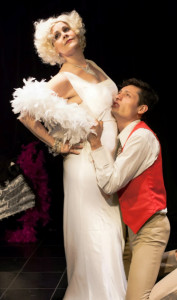LnRiLWZpZWxke21hcmdpbi1ib3R0b206MC43NmVtfS50Yi1maWVsZC0tbGVmdHt0ZXh0LWFsaWduOmxlZnR9LnRiLWZpZWxkLS1jZW50ZXJ7dGV4dC1hbGlnbjpjZW50ZXJ9LnRiLWZpZWxkLS1yaWdodHt0ZXh0LWFsaWduOnJpZ2h0fS50Yi1maWVsZF9fc2t5cGVfcHJldmlld3twYWRkaW5nOjEwcHggMjBweDtib3JkZXItcmFkaXVzOjNweDtjb2xvcjojZmZmO2JhY2tncm91bmQ6IzAwYWZlZTtkaXNwbGF5OmlubGluZS1ibG9ja311bC5nbGlkZV9fc2xpZGVze21hcmdpbjowfQ==
LnRiLWhlYWRpbmcuaGFzLWJhY2tncm91bmR7cGFkZGluZzowfQ==
LnRiLWZpZWxkcy1hbmQtdGV4dFtkYXRhLXRvb2xzZXQtYmxvY2tzLWZpZWxkcy1hbmQtdGV4dD0iYmMyNzgyYzRhMzY4MWRiZWMxYTJkOTE0Y2VjNjkxODIiXSB7IGxpbmUtaGVpZ2h0OiAxLjRlbTsgfSAudGItZmllbGRzLWFuZC10ZXh0W2RhdGEtdG9vbHNldC1ibG9ja3MtZmllbGRzLWFuZC10ZXh0PSJiYzI3ODJjNGEzNjgxZGJlYzFhMmQ5MTRjZWM2OTE4MiJdIHAgeyBsaW5lLWhlaWdodDogMS40ZW07IH0gLnRiLWdyaWQsLnRiLWdyaWQ+LmJsb2NrLWVkaXRvci1pbm5lci1ibG9ja3M+LmJsb2NrLWVkaXRvci1ibG9jay1saXN0X19sYXlvdXR7ZGlzcGxheTpncmlkO2dyaWQtcm93LWdhcDoyNXB4O2dyaWQtY29sdW1uLWdhcDoyNXB4fS50Yi1ncmlkLWl0ZW17YmFja2dyb3VuZDojZDM4YTAzO3BhZGRpbmc6MzBweH0udGItZ3JpZC1jb2x1bW57ZmxleC13cmFwOndyYXB9LnRiLWdyaWQtY29sdW1uPip7d2lkdGg6MTAwJX0udGItZ3JpZC1jb2x1bW4udGItZ3JpZC1hbGlnbi10b3B7d2lkdGg6MTAwJTtkaXNwbGF5OmZsZXg7YWxpZ24tY29udGVudDpmbGV4LXN0YXJ0fS50Yi1ncmlkLWNvbHVtbi50Yi1ncmlkLWFsaWduLWNlbnRlcnt3aWR0aDoxMDAlO2Rpc3BsYXk6ZmxleDthbGlnbi1jb250ZW50OmNlbnRlcn0udGItZ3JpZC1jb2x1bW4udGItZ3JpZC1hbGlnbi1ib3R0b217d2lkdGg6MTAwJTtkaXNwbGF5OmZsZXg7YWxpZ24tY29udGVudDpmbGV4LWVuZH0gLndwLWJsb2NrLXRvb2xzZXQtYmxvY2tzLWdyaWQudGItZ3JpZFtkYXRhLXRvb2xzZXQtYmxvY2tzLWdyaWQ9Ijc1MGRmNGQ5NGJlOWM1YmYxNjFhYWNiM2M3MWE4NzRjIl0geyBncmlkLXRlbXBsYXRlLWNvbHVtbnM6IG1pbm1heCgwLCAwLjFmcikgbWlubWF4KDAsIDAuOWZyKTtncmlkLWF1dG8tZmxvdzogcm93IH0gLndwLWJsb2NrLXRvb2xzZXQtYmxvY2tzLWdyaWQudGItZ3JpZFtkYXRhLXRvb2xzZXQtYmxvY2tzLWdyaWQ9Ijc1MGRmNGQ5NGJlOWM1YmYxNjFhYWNiM2M3MWE4NzRjIl0gPiAudGItZ3JpZC1jb2x1bW46bnRoLW9mLXR5cGUoMm4gKyAxKSB7IGdyaWQtY29sdW1uOiAxIH0gLndwLWJsb2NrLXRvb2xzZXQtYmxvY2tzLWdyaWQudGItZ3JpZFtkYXRhLXRvb2xzZXQtYmxvY2tzLWdyaWQ9Ijc1MGRmNGQ5NGJlOWM1YmYxNjFhYWNiM2M3MWE4NzRjIl0gPiAudGItZ3JpZC1jb2x1bW46bnRoLW9mLXR5cGUoMm4gKyAyKSB7IGdyaWQtY29sdW1uOiAyIH0gIGgyLnRiLWhlYWRpbmdbZGF0YS10b29sc2V0LWJsb2Nrcy1oZWFkaW5nPSJjYjY4OTczODhmYjFmNTU1NTNmYzgxNTkyYzM0YmFiNyJdICB7IHBhZGRpbmctdG9wOiAwcHg7cGFkZGluZy1ib3R0b206IDBweDttYXJnaW4tdG9wOiAwcHg7bWFyZ2luLWJvdHRvbTogMHB4OyB9ICAud3AtYmxvY2stdG9vbHNldC1ibG9ja3MtZ3JpZC1jb2x1bW4udGItZ3JpZC1jb2x1bW5bZGF0YS10b29sc2V0LWJsb2Nrcy1ncmlkLWNvbHVtbj0iMzAzNGZiZTg4NmMxMTA1NGU5NWI0NmIwOWQzZTQxMTIiXSB7IGRpc3BsYXk6IGZsZXg7IH0gIC50Yi1maWVsZFtkYXRhLXRvb2xzZXQtYmxvY2tzLWZpZWxkPSI0ZWFiYWYzMmNlNTZmMWFkZDFiMTMwYWRmNWZkZmYxYyJdIHsgZm9udC1zaXplOiAxNXB4O3BhZGRpbmctdG9wOiAwcHg7cGFkZGluZy1ib3R0b206IDBweDttYXJnaW4tdG9wOiAwcHg7bWFyZ2luLWJvdHRvbTogMHB4OyB9ICAudGItZmllbGRbZGF0YS10b29sc2V0LWJsb2Nrcy1maWVsZD0iNzg3MjkzZTc5ZmJhNGU0M2Y2OTJmNGU0ZTgyODM3ZWQiXSB7IGZvbnQtc2l6ZTogMTVweDtjb2xvcjogcmdiYSggMjQ1LCAyNDUsIDI0NSwgMSApO3BhZGRpbmctdG9wOiAwcHg7cGFkZGluZy1ib3R0b206IDBweDttYXJnaW4tdG9wOiAwcHg7bWFyZ2luLWJvdHRvbTogMHB4OyB9ICBoMi50Yi1oZWFkaW5nW2RhdGEtdG9vbHNldC1ibG9ja3MtaGVhZGluZz0iNWI4Yjg0ZmE5YmZlMDdlOTJjMGVjMzcwNDM0YWFjN2MiXSAgeyB0ZXh0LWFsaWduOiBsZWZ0O3BhZGRpbmctdG9wOiAwcHg7cGFkZGluZy1ib3R0b206IDBweDttYXJnaW4tdG9wOiAwcHg7bWFyZ2luLWJvdHRvbTogN3B4OyB9ICBAbWVkaWEgb25seSBzY3JlZW4gYW5kIChtYXgtd2lkdGg6IDc4MXB4KSB7IC50Yi1ncmlkLC50Yi1ncmlkPi5ibG9jay1lZGl0b3ItaW5uZXItYmxvY2tzPi5ibG9jay1lZGl0b3ItYmxvY2stbGlzdF9fbGF5b3V0e2Rpc3BsYXk6Z3JpZDtncmlkLXJvdy1nYXA6MjVweDtncmlkLWNvbHVtbi1nYXA6MjVweH0udGItZ3JpZC1pdGVte2JhY2tncm91bmQ6I2QzOGEwMztwYWRkaW5nOjMwcHh9LnRiLWdyaWQtY29sdW1ue2ZsZXgtd3JhcDp3cmFwfS50Yi1ncmlkLWNvbHVtbj4qe3dpZHRoOjEwMCV9LnRiLWdyaWQtY29sdW1uLnRiLWdyaWQtYWxpZ24tdG9we3dpZHRoOjEwMCU7ZGlzcGxheTpmbGV4O2FsaWduLWNvbnRlbnQ6ZmxleC1zdGFydH0udGItZ3JpZC1jb2x1bW4udGItZ3JpZC1hbGlnbi1jZW50ZXJ7d2lkdGg6MTAwJTtkaXNwbGF5OmZsZXg7YWxpZ24tY29udGVudDpjZW50ZXJ9LnRiLWdyaWQtY29sdW1uLnRiLWdyaWQtYWxpZ24tYm90dG9te3dpZHRoOjEwMCU7ZGlzcGxheTpmbGV4O2FsaWduLWNvbnRlbnQ6ZmxleC1lbmR9IC53cC1ibG9jay10b29sc2V0LWJsb2Nrcy1ncmlkLnRiLWdyaWRbZGF0YS10b29sc2V0LWJsb2Nrcy1ncmlkPSI3NTBkZjRkOTRiZTljNWJmMTYxYWFjYjNjNzFhODc0YyJdIHsgZ3JpZC10ZW1wbGF0ZS1jb2x1bW5zOiBtaW5tYXgoMCwgMC4xZnIpIG1pbm1heCgwLCAwLjlmcik7Z3JpZC1hdXRvLWZsb3c6IHJvdyB9IC53cC1ibG9jay10b29sc2V0LWJsb2Nrcy1ncmlkLnRiLWdyaWRbZGF0YS10b29sc2V0LWJsb2Nrcy1ncmlkPSI3NTBkZjRkOTRiZTljNWJmMTYxYWFjYjNjNzFhODc0YyJdID4gLnRiLWdyaWQtY29sdW1uOm50aC1vZi10eXBlKDJuICsgMSkgeyBncmlkLWNvbHVtbjogMSB9IC53cC1ibG9jay10b29sc2V0LWJsb2Nrcy1ncmlkLnRiLWdyaWRbZGF0YS10b29sc2V0LWJsb2Nrcy1ncmlkPSI3NTBkZjRkOTRiZTljNWJmMTYxYWFjYjNjNzFhODc0YyJdID4gLnRiLWdyaWQtY29sdW1uOm50aC1vZi10eXBlKDJuICsgMikgeyBncmlkLWNvbHVtbjogMiB9ICAgLndwLWJsb2NrLXRvb2xzZXQtYmxvY2tzLWdyaWQtY29sdW1uLnRiLWdyaWQtY29sdW1uW2RhdGEtdG9vbHNldC1ibG9ja3MtZ3JpZC1jb2x1bW49IjMwMzRmYmU4ODZjMTEwNTRlOTViNDZiMDlkM2U0MTEyIl0geyBkaXNwbGF5OiBmbGV4OyB9ICAgICAgfSBAbWVkaWEgb25seSBzY3JlZW4gYW5kIChtYXgtd2lkdGg6IDU5OXB4KSB7IC50Yi1ncmlkLC50Yi1ncmlkPi5ibG9jay1lZGl0b3ItaW5uZXItYmxvY2tzPi5ibG9jay1lZGl0b3ItYmxvY2stbGlzdF9fbGF5b3V0e2Rpc3BsYXk6Z3JpZDtncmlkLXJvdy1nYXA6MjVweDtncmlkLWNvbHVtbi1nYXA6MjVweH0udGItZ3JpZC1pdGVte2JhY2tncm91bmQ6I2QzOGEwMztwYWRkaW5nOjMwcHh9LnRiLWdyaWQtY29sdW1ue2ZsZXgtd3JhcDp3cmFwfS50Yi1ncmlkLWNvbHVtbj4qe3dpZHRoOjEwMCV9LnRiLWdyaWQtY29sdW1uLnRiLWdyaWQtYWxpZ24tdG9we3dpZHRoOjEwMCU7ZGlzcGxheTpmbGV4O2FsaWduLWNvbnRlbnQ6ZmxleC1zdGFydH0udGItZ3JpZC1jb2x1bW4udGItZ3JpZC1hbGlnbi1jZW50ZXJ7d2lkdGg6MTAwJTtkaXNwbGF5OmZsZXg7YWxpZ24tY29udGVudDpjZW50ZXJ9LnRiLWdyaWQtY29sdW1uLnRiLWdyaWQtYWxpZ24tYm90dG9te3dpZHRoOjEwMCU7ZGlzcGxheTpmbGV4O2FsaWduLWNvbnRlbnQ6ZmxleC1lbmR9IC53cC1ibG9jay10b29sc2V0LWJsb2Nrcy1ncmlkLnRiLWdyaWRbZGF0YS10b29sc2V0LWJsb2Nrcy1ncmlkPSI3NTBkZjRkOTRiZTljNWJmMTYxYWFjYjNjNzFhODc0YyJdIHsgZ3JpZC10ZW1wbGF0ZS1jb2x1bW5zOiBtaW5tYXgoMCwgMC4xNGZyKSBtaW5tYXgoMCwgMC44NmZyKTtncmlkLWF1dG8tZmxvdzogcm93IH0gLndwLWJsb2NrLXRvb2xzZXQtYmxvY2tzLWdyaWQudGItZ3JpZFtkYXRhLXRvb2xzZXQtYmxvY2tzLWdyaWQ9Ijc1MGRmNGQ5NGJlOWM1YmYxNjFhYWNiM2M3MWE4NzRjIl0gPiAudGItZ3JpZC1jb2x1bW46bnRoLW9mLXR5cGUoMm4gKyAxKSB7IGdyaWQtY29sdW1uOiAxIH0gLndwLWJsb2NrLXRvb2xzZXQtYmxvY2tzLWdyaWQudGItZ3JpZFtkYXRhLXRvb2xzZXQtYmxvY2tzLWdyaWQ9Ijc1MGRmNGQ5NGJlOWM1YmYxNjFhYWNiM2M3MWE4NzRjIl0gPiAudGItZ3JpZC1jb2x1bW46bnRoLW9mLXR5cGUoMm4gKyAyKSB7IGdyaWQtY29sdW1uOiAyIH0gICAud3AtYmxvY2stdG9vbHNldC1ibG9ja3MtZ3JpZC1jb2x1bW4udGItZ3JpZC1jb2x1bW5bZGF0YS10b29sc2V0LWJsb2Nrcy1ncmlkLWNvbHVtbj0iMzAzNGZiZTg4NmMxMTA1NGU5NWI0NmIwOWQzZTQxMTIiXSB7IGRpc3BsYXk6IGZsZXg7IH0gICAgICB9IA==
Mae West’s “Diamond Lil”
November 25, 2013
Don’t Tell Mama – September 15, 22, October 27, November 3, 10, 17, 24
 If today’s audiences know about Diamond Lil, it’s likely because of the 1933 film She Done Him Wrong, in which Mae West played a character named not “Diamond Lil” but rather “Lady Lou.” But West and her playwright collaborator, Adeline Leitzbach, had created the character as the protagonist of their 1928 stage show, which was significantly racier than the film. Lil epitomizes the West persona perfectly. She is a boisterously libidinous creature with a wry sense of humor about sex—and about her own devotion to it. And West embraced this character, reviving the play in the late 1940s and early 1950s when her film career was dormant.
If today’s audiences know about Diamond Lil, it’s likely because of the 1933 film She Done Him Wrong, in which Mae West played a character named not “Diamond Lil” but rather “Lady Lou.” But West and her playwright collaborator, Adeline Leitzbach, had created the character as the protagonist of their 1928 stage show, which was significantly racier than the film. Lil epitomizes the West persona perfectly. She is a boisterously libidinous creature with a wry sense of humor about sex—and about her own devotion to it. And West embraced this character, reviving the play in the late 1940s and early 1950s when her film career was dormant.
LindaAnn Loschiavo has now reworked the play, restoring as much of the original’s licentious fun as possible, for those of us who missed out on it back in 1928 or 1949. Set in the squalid Bowery of 1890s New York, the piece is a lively if dramaturgically unkempt melodrama about saloon entertainer Lil, who is bait for the vice squad but who has a kind heart and a philanthropic spirit. Lil enjoys sin but has no taste for crime, so you’re on her side when she is innocently pulled into a white-slavery scheme.
Performed on the tiny stage of Don’t Tell Mama (and throughout the showroom itself), the restored Diamond Lil proves to be a somewhat ramshackle but nevertheless endearing show. The vehicle might well benefit from a revival with grander production values. Nonetheless, it succeeds in this cabaret setting on its own modest terms.
Part of the show’s vitality can be attributed to its star, Darlene Violette, who also co-directed (with Dena Tyler). Violette lovingly impersonates West in the role, although she more closely resembles one or another of the Gabor sisters in their radiant prime. Violette gets the sexually exuberant part of Lil right, but she also brings out an oddly affecting cerebral dimension of the character. “What makes people good?” Lil wonders in one soliloquy, and Violette makes it seem as though the character had been sampling an anthology of World Philosophy back in her bordello-ish boudoir.
Lil provides a true star turn for Violette, just as it did for West—so much so, in fact, that many of the supporting characters often are lost in the shapely shadow of the leading lady. Still, Joanna Bonaro effectively portrays Lil’s feisty Latina rival, Rita Christinia, as well as the Thelma Ritter-ish maid of all work, Frances. Juan Sebastian Cortes has fun as steamy Pablo Juarez, over whom Lil and Rita tangle. And I thoroughly enjoyed seeing Don’t Tell Mama’s own Sidney Myer as one of Lil’s many love interests: the tough-talking saloon owner (and corrupt mayoral candidate) Gus Jordan. Another standout is darkly handsome Anthony DiCarlo, whose roles include that of Cummings, the Salvation Army captain whose virility ramps up Lil’s libido a few notches. (This is the role played by a young Cary Grant in She Done Him Wrong).
Some passages in the script might have been further abridged, beginning with the opening tirade by jailbird Chick Clark (Gary Napoli). And it seems strange to me that, in a cabaret setting with a piano available, Lil would sing her songs (“Frankie and Johnny,” “A Guy What Takes His Time” and “I Wonder Where My Easy Rider’s Gone”) a cappella. Even unaccompanied, though, Violette nicely mimics West’s musical sound: the purr of a flashy flivver sashaying down the highway.
Mark Dundas Wood is an arts/entertainment journalist and dramaturg. He began writing reviews for BistroAwards.com in 2011. More recently he has contributed "Cabaret Setlist" articles about cabaret repertoire. Other reviews and articles have appeared in theaterscene.net and clydefitchreport.com, as well as in American Theatre and Back Stage. As a dramaturg, he has worked with New Professional Theatre and the New York Musical Theatre Festival. He is currently literary manager for Broad Horizons Theatre Company.
 If today’s audiences know about Diamond Lil, it’s likely because of the 1933 film She Done Him Wrong, in which Mae West played a character named not “Diamond Lil” but rather “Lady Lou.” But West and her playwright collaborator, Adeline Leitzbach, had created the character as the protagonist of their 1928 stage show, which was significantly racier than the film. Lil epitomizes the West persona perfectly. She is a boisterously libidinous creature with a wry sense of humor about sex—and about her own devotion to it. And West embraced this character, reviving the play in the late 1940s and early 1950s when her film career was dormant.
If today’s audiences know about Diamond Lil, it’s likely because of the 1933 film She Done Him Wrong, in which Mae West played a character named not “Diamond Lil” but rather “Lady Lou.” But West and her playwright collaborator, Adeline Leitzbach, had created the character as the protagonist of their 1928 stage show, which was significantly racier than the film. Lil epitomizes the West persona perfectly. She is a boisterously libidinous creature with a wry sense of humor about sex—and about her own devotion to it. And West embraced this character, reviving the play in the late 1940s and early 1950s when her film career was dormant.



